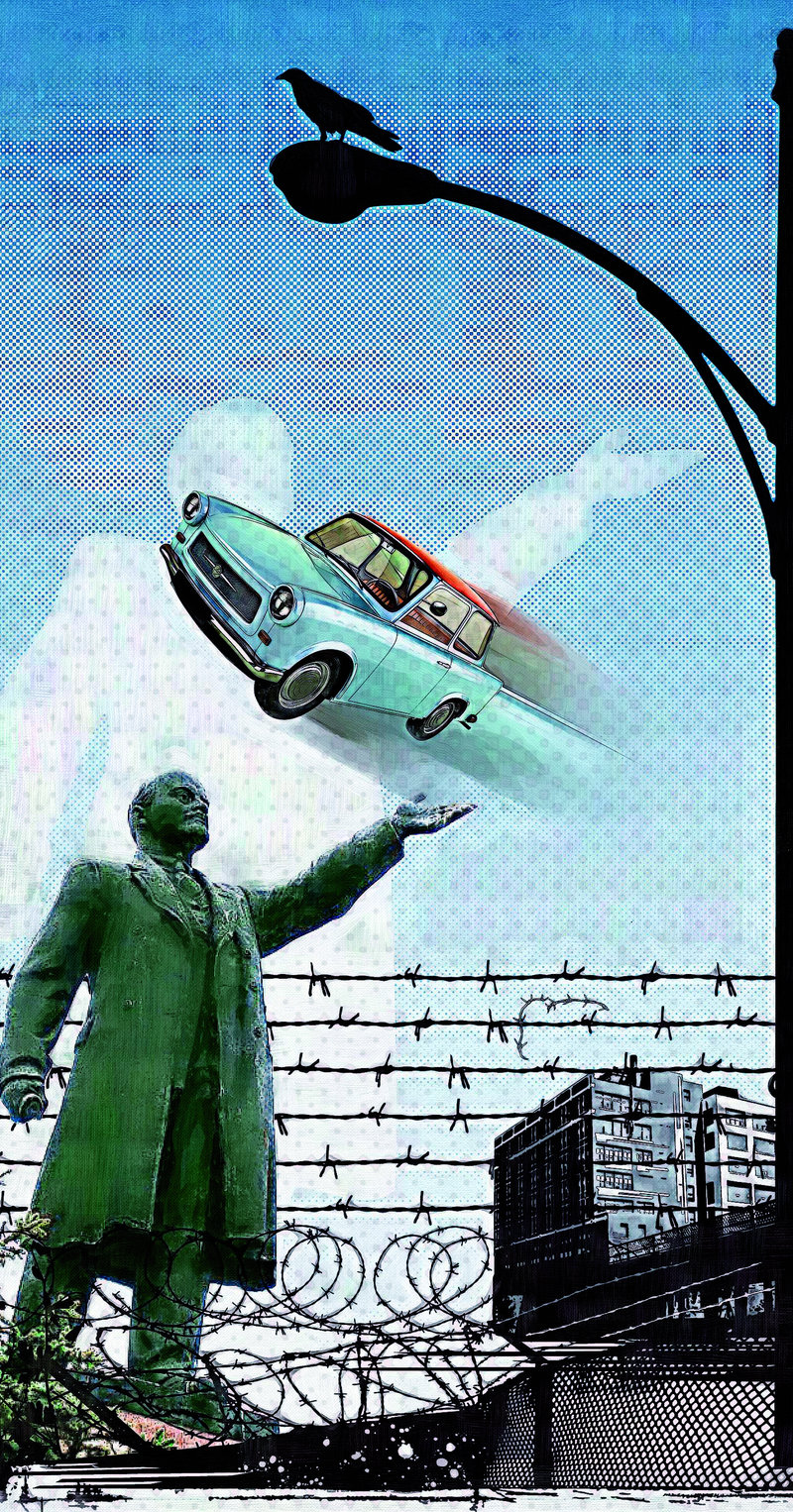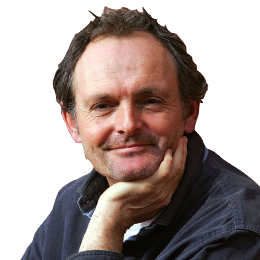HEADING FOR THE HILLS
Seascape
Thirty years ago I was on an express train. It was November 10 and I was about to have a front row view of history, just as I sense is happening to me now.
The Hanover to Munich service was on schedule, racing through the West Germany countryside as night fell. It should have been a five-hour journey, but it wasn’t. I was not to sleep a wink that night.
I was there for long-planned meetings at newspaper offices in the two cities, a schedule set with no inkling of what was about to unfold so quickly and radically.
Word of the breaching of the Berlin Wall reached me while I was in Hanover. All the journalists there feared that, in its death throes, the brittle regime of East Germany would turn murderous and reinforce its border two-fold. Nobody predicted what would happen next.
The rail line skirted the bleak border and at that point it stopped at a town station. The bewildered West German passengers pressed their faces to the windows. The platform was pulsing with people racing in all directions, some desperately trying to get on to the train.
One of the railway guards told me he had just come from his home, which was close to where the border fence sliced across a former Nazi autobahn. No car had come along the massive concrete motorway for 44 years.
He said he had not slept. The previous day a hole had been cut through the wire and Trabant cars and people on foot were pouring West.
We pushed through the throng and he helped me find a young couple who had just crossed the once deadly frontier. I offered to take them to the train’s restaurant carriage and buy them a meal.
For two hours they ate hungrily and talked of their repeated efforts to get to the West, of being chased and arrested on the Czech border, of not daring to bring their young child with them this time for fear of being detained or shot at again. They were trying to understand the momentous events unfolding, as were we all.
I turned to look over my shoulder. All the other travellers in the dining carriage, mostly West German businessmen in dog-tooth suits and expensive shoes, were crowding in to listen to these two strangers in cheap faded denim clothes.
I spent the rest of that night on the street, among a population waking up to a different world.
Within four days nearly five million East Germans – a quarter of the population – poured into West Germany. In some places there were tailbacks reaching 66 kilometres with families queuing for 12 hours. The railway official told me his family and their neighbours had been providing drink and food.
I wonder what became of that young couple in denim, and their child. Perhaps, such has been my training as a research journalist, I will try and trace them one day. It would be fascinating to know, as it would the fortunes of the Vietnamese family plucked from the South China sea and brought to England 10 years earlier. The father, so diminished in a vast fake-leather jacket gifted by a charity, told a vivid story, just one among the many Vietnamese boat people, that was another waypoint in my life.
Brave people. Resolute.
It is always vital to listen, ask, talk, register, the faces and stories, not just the numbers. And it is a deep privilege. While on we forge, riding the swell of the ever-changing political seascape.


